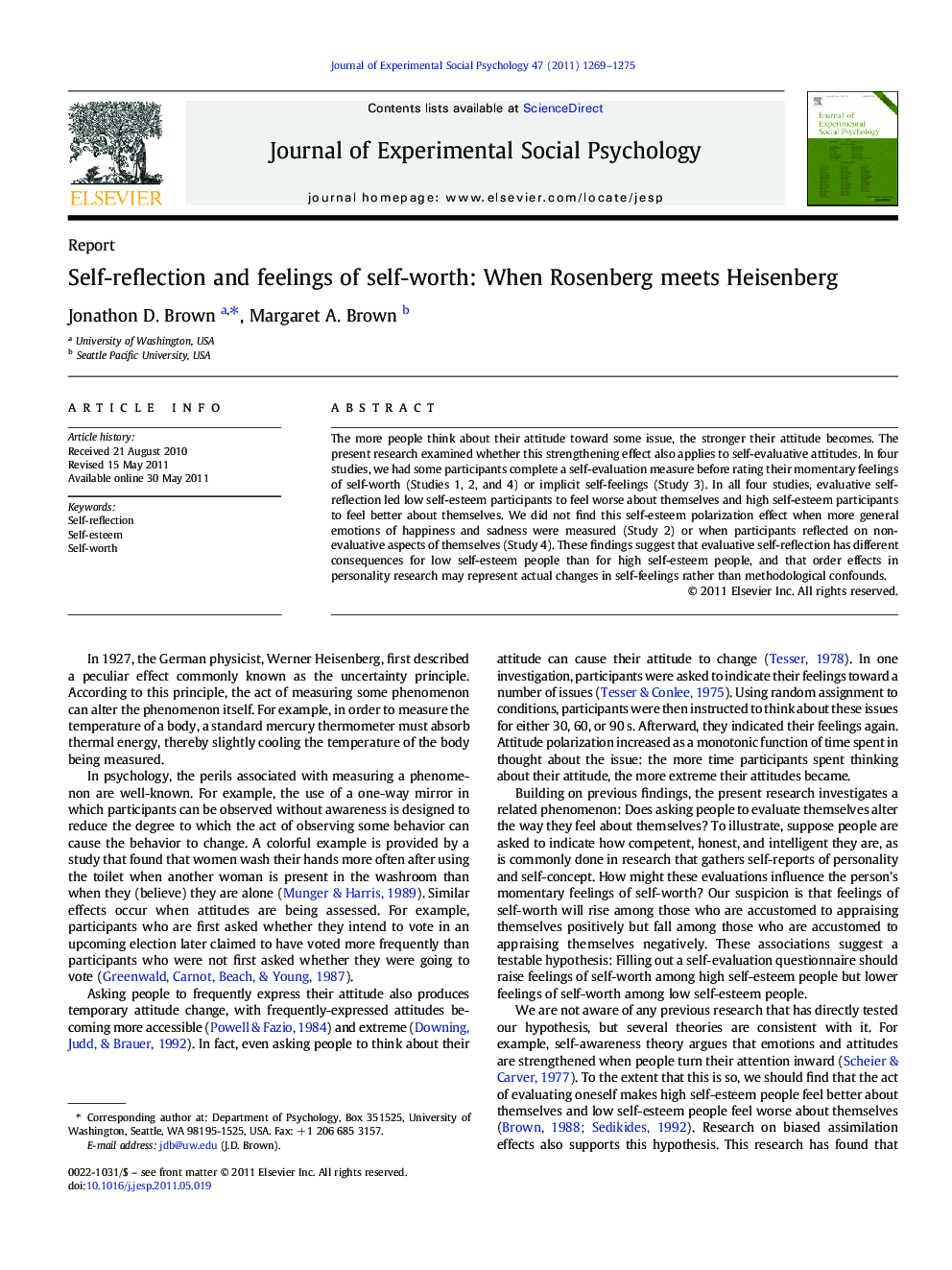| Article ID | Journal | Published Year | Pages | File Type |
|---|---|---|---|---|
| 947998 | Journal of Experimental Social Psychology | 2011 | 7 Pages |
The more people think about their attitude toward some issue, the stronger their attitude becomes. The present research examined whether this strengthening effect also applies to self-evaluative attitudes. In four studies, we had some participants complete a self-evaluation measure before rating their momentary feelings of self-worth (Studies 1, 2, and 4) or implicit self-feelings (Study 3). In all four studies, evaluative self-reflection led low self-esteem participants to feel worse about themselves and high self-esteem participants to feel better about themselves. We did not find this self-esteem polarization effect when more general emotions of happiness and sadness were measured (Study 2) or when participants reflected on non-evaluative aspects of themselves (Study 4). These findings suggest that evaluative self-reflection has different consequences for low self-esteem people than for high self-esteem people, and that order effects in personality research may represent actual changes in self-feelings rather than methodological confounds.
► Self-esteem moderates reactions to evaluative self-reflection. ► Order effects in personality research can produce temporary shifts in self-feelings. ► Measuring self-worth can alter self-worth.
